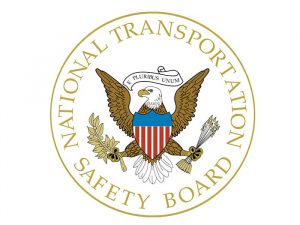
Q&A: Lake Carriers’ Association President James Weakley
Written by Heather Ervin
Jim Weakley
ML: What can you tell us about the recent Illinois River lock closures and how that’s impacted Great Lakes shipping, if at all?
JW: The Illinois River lock closures have not had much of an impact on our members since we operate solely within the lakes themselves. However, we fully understand the importance of the locks that that U.S. Army Corps operates. More than 90% of the 80-plus million tons of vital raw materials that move to and from Lake Superior ports each year transit the largest lock at Sault Ste. Marie, Michigan (“Soo”), the Poe Lock, one of two operational locks. 95% of all U.S. tonnage moving through the Soo are restricted to the Poe Lock, the lynchpin of American manufacturing. Iron ore for steel making is mined in Minnesota and Michigan and transported by U.S. Great Lakes ships to steel mills in Indiana, Michigan, Ohio, and Pennsylvania, and in turn this steel is sent to automobile, appliance, and other manufacturers throughout the country. Thankfully, the Soo Locks continue to receive funding for a new large lock through the efforts of so many in government and industry. So far, $241.6 million has been invested in this seven to 10-year project.
Shovels are finally digging as work has begun on deepening the upstream approach to accommodate today’s vessels. Five-and-a-half feet of bedrock, which will total about 300,000 cubic yards, or the equivalent of 30,000 dump trucks, is being removed. The approach walls contract will be awarded shortly with work commencing next spring. The Corps recalculated their capacity for 2021 construction and design and the resulting “efficient funding” for FY 2021 was raised to $224.4 million, about $50 million more than originally presented. The good news is the Corps is moving faster than anticipated. Yet the President’s budget request was $123.2 million. That leaves a $101.2 million shortfall. While not bad news, it means there is extra work still to be done to get the Corps and Congress to close that gap.
ML: Is there anything you’d like our readers to know about Great Lakes shipping and LCA that I haven’t asked you?
JW: Given the economic power grab by the Canadian Government’s ballast water regulations, we filed a petition with the Federal Maritime Commission (FMC) for discrimination against U.S.-flag vessels engaged in the foreign trade of the United States. The commissioners unanimously voted to open an investigation into our claim. Thankfully, the Jones Act provides the FMC with the authority to investigate the situation and impose penalties if we prove our case. We spent nearly a decade working with the Canadian Government on the ballast water issue and regulations. Our efforts alone proved insufficient.




